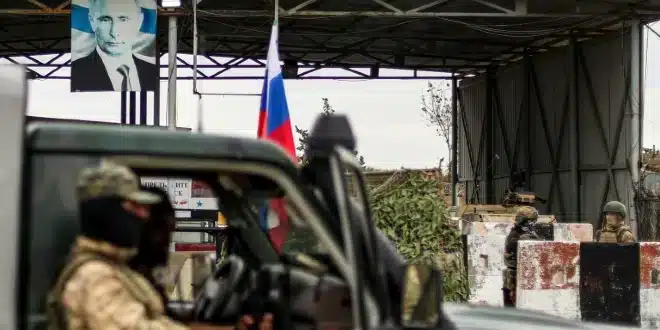The collapse of Bashar al-Assad’s regime in Syria, a long-standing ally of Russia, has upended the Kremlin’s strategy across the Mediterranean and Africa. This shift is forcing Moscow to redirect its focus toward Libya as a potential new stronghold, according to experts.
Russia’s military operations in the Mediterranean, Middle East, and sub-Saharan Africa relied heavily on its bases along the Syrian coast. With Assad’s sudden removal from power, this strategic setup faces significant disruption.
Although Syria’s new leader, Ahmed al-Sharaa, has signaled a desire to maintain relations with Russia, the political reshuffling in Syria is compelling Moscow to pivot its attention to Libya. In Libya, Russian mercenaries are already supporting Khalifa Haftar, who controls the country’s east, in opposition to the UN-recognized Government of National Unity (GNU) in Tripoli, which is backed by Turkey.
This realignment is a defensive move to secure Russia’s ongoing military and political operations in Africa, explained Jalel Harchaoui from the RUSI think tank in the UK. It reflects Russia’s effort to adapt to its declining influence in Syria.
Russian activities in Libya have grown significantly. Reports from the investigative group “All Eyes On Wagner” in May 2024 revealed Russian military operations at multiple Libyan sites, including the strategic port of Tobruk. By mid-2024, Russian troop numbers in Libya had nearly doubled, alongside reports of advanced military equipment being transferred from Syria, including S-300 and S-400 missile defense systems.
Since Assad’s fall on December 8, there has been a marked increase in the movement of Russian troops and military resources into Libya. Ukrainian intelligence claims that Moscow is using cargo ships to transport arms and equipment into the region, further solidifying its presence.
Libya is central to Russia’s strategy to maintain regional influence. Unlike Syria, which provided a stage for Moscow to test military capabilities and challenge NATO’s eastern flank, Libya offers an opportunity to disrupt Western interests and extend influence into Africa. This is particularly evident in Russia’s partnership with Haftar, who serves as a counterweight to the Tripoli-based GNU.
However, Russia’s shift to Libya faces significant challenges. Unlike Syria, where Moscow operated with little scrutiny, Libya is more transparent, making it harder for Russian activities to remain concealed. Additionally, Russia must navigate the complex alliances of other influential players, including Turkey, Egypt, and the UAE, all of which are involved in Libya’s fractured politics.
Efforts to gain a permanent foothold in Tobruk’s port have drawn concern from the Tripoli government, Italy, NATO, and the EU. The United States has also reportedly pressured Haftar to deny Russia a lasting presence in the area.
Despite these challenges, Russia appears determined to pursue its strategy in Libya, using it as a platform to project power across the region. However, experts warn that relying solely on Haftar could repeat the mistakes made in Syria, where Russia’s plans depended heavily on a single leader.
As Russia seeks to solidify its position in Libya, it must balance its efforts with a broader contingency plan and navigate the delicate dynamics of Libya’s divided political landscape. While Haftar values Russian support, he is unlikely to sever ties with Western allies completely, limiting Moscow’s influence in the region.


